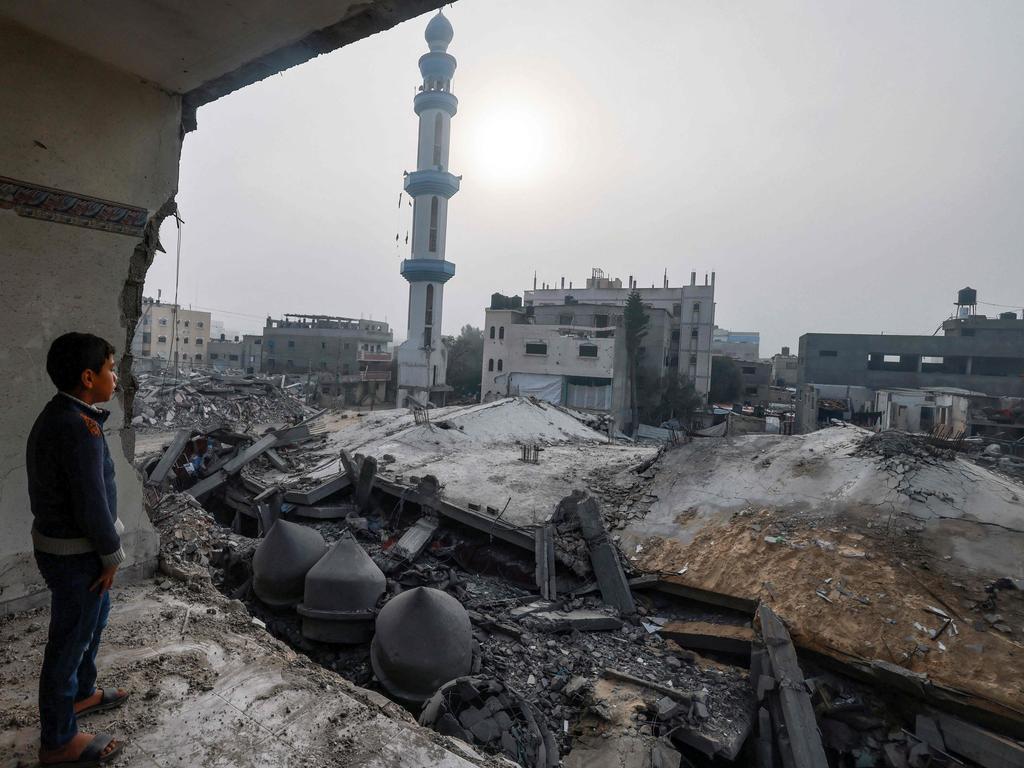Ceasefire demands are unreasonable on Israel

Israel has said it won’t leave Gaza permanently without a clear military victory. On Sunday, Prime Minister Benjamin Netanyahu said that an incursion into Rafah in southern Gaza could be “delayed somewhat”, but not cancelled, if a hostage agreement was secured.
There’s no legal term for “ceasefire” in the laws of armed conflict, only “truce”, “armistice” and “surrender”. The laws of military conflict do prohibit abuse of such things for military gain, which it calls “perfidy”; using, for example, white flags (the “flag of truce”) to strike once an unsuspecting enemy is exposed.
A ceasefire can really be equated to a truce. A ceasefire may be the product of a formal agreement or understanding. It requires cessation of active military operations. But it may or may not prohibit reinforcements, resupply of munitions or observation of the opponent.
The International Committee of the Red Cross laws of conflict definition of “truce” is an agreement between belligerents to interrupt for a stated period the use of means of warfare in a specific locality or sector. A truce should enable work to be done that’s unrelated to the general conduct of war, such as removal of the wounded, burial of the dead, exchange of prisoners, or to give military commanders time to ask for instructions regarding negotiations.
For so long as the suspension of hostilities remains in force, and failing agreement to the contrary, there must be no change in the positions of the opposing forces. If a belligerent were required to leave territory, it would compromise its position in any subsequent negotiations. Calls for Israel to withdraw from territory as part of any ceasefire demonstrate that Israel is, once again, being singled out and treated differently from others.
The US draft resolution presented to the UN Security Council last week was startling in one respect. It rejected any action that would lead to the “reduction of Gaza territory, on a temporary or permanent basis, including through the formal or informal establishment of so-called buffer zones”. These are areas that Israeli bulldozers and tanks have already begun to draw along the Strip. But in the territory a party occupies when fighting ceases, nothing prevents it from constructing defensive fortifications. The US draft resolution did not appear to contemplate similar restrictions on Hamas, such as constructing new or expanding or repairing existing tunnels.
In sum: a ceasefire implies nothing about abandoning territory. UN ceasefire proposals in the past have not mandated withdrawals from territory. But given the broad mandate of the Security Council, it would be within its authority to make a binding decision that a state should cease firing and withdraw from territory it had occupied during hostilities. It would be unwise to do so in the case of Gaza. Such a demand would make any ceasefire unacceptable to Israel.
Suspension of hostilities does not entail suspension of the application of international humanitarian law or put an end to the state of war, which subsists with all its legal consequences. The return of hostages might be made a condition of a ceasefire. But they’re Hamas’s key asset: it’s difficult to see them releasing hostages in return for a temporary ceasefire.
In all the discussion about humanitarian pauses, truces and ceasefires, it’s worth noting that there was a ceasefire in Gaza before October 7. It’s risible to think that Israel would be in Gaza, conducting what it calls the “Swords of Iron” operation, had the ceasefire not been broken when thousands of Hamas-led terrorists conducted a murderous rampage across southern Israel.
Anthony Bergin is a senior fellow at Strategic Analysis Australia and former adjunct reader in law at the Australian National University





Hamas and its supporters are calling for a full pull-out of Israeli troops from the Gaza Strip as part of any ceasefire. But as far as the legal situation is concerned, there’s no requirement in any ceasefire agreement for Israel to withdraw fully or to partially disengage from Israel Defence Force positions in Gaza.